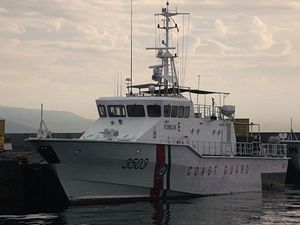Filipinos worldwide celebrated the ruling issued by The Hague-based Permanent Court of Arbitration with regard to the case filed by the Philippine government against China’s unilateral imposition of a “nine-dash line” claim in the South China Sea (known in the Philippines as West Philippine Sea).
The court favored the petition of the Philippines by debunking China’s assertion of ownership based on its historic rights over the South China Sea. Further, it affirmed the criticism of the Philippines against China’s activities such as reclaiming lands, destroying marine resources, and harassing Filipino fishermen.
Foreign Affairs Secretary Perfecto Yasay acknowledged the victory of the Philippines.
“The Philippines strongly affirms its respect for this milestone decision as an important contribution to ongoing efforts in addressing disputes in the South China Sea,” he said.
But he also called the public and all stakeholders to “exercise restraint and sobriety.”
His muted response disappointed many Filipinos. Some even accused him of wanting to appease China.
If the government seemed less enthusiastic about the outcome of the arbitration, the majority of Filipinos reacted differently. Hours after the release of the ruling, the hashtag #Chexit dominated social media with Filipino Internet users rejoicing over the decision while demanding the removal of Chinese facilities in the country’s territorial waters. #Chexit is inspired by #Brexit, which refers to the decision of the United Kingdom to pull out from the European Union.
Former President Benigno Aquino III, who initiated the case against China in 2013, urged the international community to use the ruling of the UN Tribunal to resolve other maritime disputes.
“Instead of viewing this decision as a victory of one party over another, the best way to look at this judgment is that it is a victory for all. I say this because the clarity rendered now establishes better conditions that enable countries to engage each other, bearing in mind their duties and rights within a context that espouses equality and amity,” Aquino said.
Senate President Franklin Drilon believes the ruling will finally allow “ASEAN and China (to) move forward (and) finalize the Code of Conduct to ensure peace and stability in the South China Sea.”
Davao Congressman Pantaleon Alvarez, the presumptive next Speaker of the House of Representatives, reminded China about its obligation to follow the international law: “We should urge China as part of the community of nations to respect the decision of the arbitral court and adhere to the peaceful settlement of territorial disputes in accordance with international law.”
Meanwhile, former Justice Secretary and now Senator Leila De Lima advised the government of President Rodrigo Duterte to use the ruling as a basis when it decides to pursue its plan to conduct bilateral talks with China.
“It is hoped that the present Administration will be properly guided in its future actions, especially in its declared bias for bilateral talks which has only proven to be always one-sided in favor of the world power at the other end of the table,” she said.
She added that there is now a legal foundation to challenge China’s “expansionist moves.”
Senior Associate Justice Antonio Carpio, who has written several studies disputing China’s “nine-dash line” policy, praised the decision of the UN Tribunal as an affirmation of the UN Convention on the Law of the Sea (UNCLOS).
“The ruling also re-affirms UNCLOS as the Constitution for the oceans of our planet, a treaty ratified by 167 States, including China and the Philippines,” Carpio said. “The ruling applies the fundamental law of the sea principle that ‘land dominates the sea,’ that is, any claim to maritime zones must emanate from land and can extend only to the limits prescribed under UNCLOS.”

































